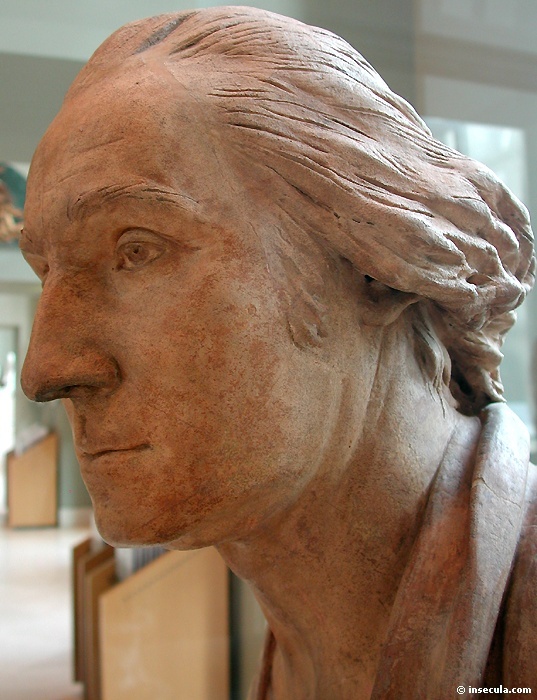|
Happy Birthday, G. Washington
Given the recent spate of liberal propaganda about the need for “non-partisanship,” it is interesting to recall that the Father of our Country, whose birthday we celebrate today, envisioned that the federal government would operate without the aid of parties, and that he was desolated when, during his second term in the presidency, parties and intense party rivalries took shape. Of course when Washington spoke of a system without parties, he did not mean it as today’s phony centrists do, as a ploy to push through radical measures without conservative opposition. He meant that the country’s best men, elected by the people, could, on the basis of a shared belief in the common good, come to agreement on the best policies. And he was simply wrong. It couldn’t be that way. Parties were born, first the Jeffersonians (known then as Republicans, later as Democrats), who were deeply suspicious of the Federal government and accused Washington of monarchism, and then the Federalists who opposed the Jeffersonians. After he left the presidency, Washington finally gave up the hope of a politics without parties and more or less openly aligned himself with the Federalists. In his four volume biography of Washington (which I discuss here), James Thomas Flexner tells how Washington sought to persuade John Marshall, the future Chief Justice of the United States, who was staying overnight at Mount Vernon, to run for Congress as a Federalist. Marshall had other plans and declined, but Washington would not let the subject go, making Marshall feel uneasy. No one wanted to say no to George Washington. In the morning, Marshall, hoping to avoid any further discussions, got up before dawn, planning to sneak away from Mount Vernon without Washington’s seeing him again. But when Marshall opened the front door of the mansion, there was Washington standing before him on the veranda, dressed in his military uniform from the War of Independence. Marshall understood Washington’s message: “Look at the sacrifices I have made for our country; how can you decline a call to service?” Marshall could not decline. Washington won the argument, not by words, but by personal example.
 Houdon’s head of Washington, in the Louvre, Paris Posted by Lawrence Auster at February 22, 2010 03:38 PM | Send Email entry |